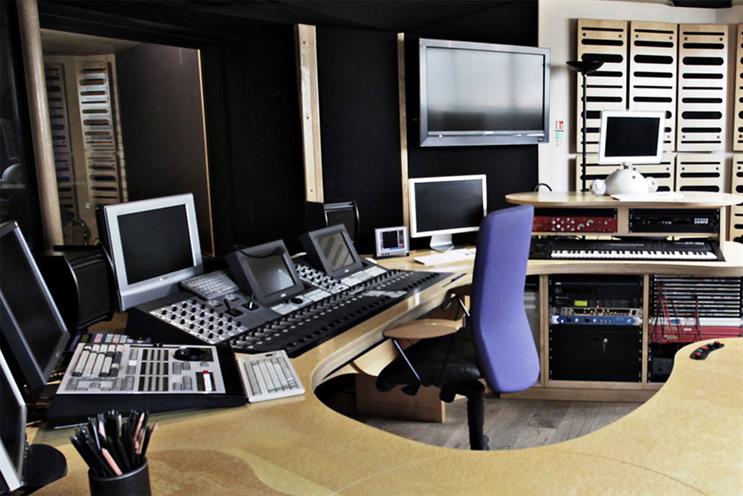Something awful happened last week: Angell Sound closed down. For 40 years, it was the industry's most established and pre-eminent sound studio. Its eponymous founder, Nick Angell, is – and I don't use this word lightly – a legend.
So why was this kind, decent and immensely talented man forced to call in the receivers? I’m sure there were many reasons, but one major factor has only reared its ugly head in recent years and its calamitous effects should make a tiny minority in this industry hang their heads in shame. Namely, those who thought it would be a good idea for agencies to install in-house studios, then force (and I mean force) their staff to use them. Practically everyone reading this will know that in-house studios have been a bad idea, so let’s look at the reasons why.
They’re not very good
And that’s putting it mildly. I've worked in lots of them. In every case and on every level – the dismal atmosphere, cheap kit, slow, inexperienced engineers, inadequate sound effects libraries… they’re vastly inferior to a place like Angell Sound. Which is why…
No-one wants to use them
Agency producers and creatives would love nothing more than to return to Soho and work at the studios of their choice, but apparently they’re not allowed to. A lot of money (although that depends on how you define "a lot") has been spent on in-house facilities and agencies are determined to make them pay. So unless producers have very sound reasons to go elsewhere, they find themselves imprisoned against their will.
'Can I have a word?'
I know this is true. While I was freelancing in one agency, the financial controller asked if he could "have a word". He wanted to know why I’d gone to Angell Sound when they’d had "capacity" in their home-made, in-house, Fisher Price-style studio. I explained that I’d needed a voice booth that could accommodate four actors and theirs could barely accommodate two. This was deemed a satisfactory reason. But "I wanted to make the work as good as it possibly could be" almost certainly wouldn’t have been.
They’re expensive
Call me naïve, but I’d always assumed that, given the lower sonic standards at in-house studios, clients would be charged a much lower hourly rate for using them. Apparently not. I’m told that they’re often charged club class rates for economy class services. I do hope that’s not true.
It’s not about the sushi
There’s a lazy cliché about creatives and producers swanning into swanky sound studios and being more interested in ordering exotic takeaways than in doing any work. In my experience, the opposite is true. The very fact that they have booked a professionally equipped studio with a properly trained engineer means they are taking their responsibilities far more seriously. They will be more attuned, more engaged and far more likely to come back with award-winning work.
It’s about the reception
Even if you moved Soho’s finest studios and most brilliant engineers "in-house", it still wouldn’t work. The magic of those reception areas would be lost en route. Walk into the reception of any good Soho studio and you’ll meet all sorts of people whom you know, like or admire. On a good day, it’s like a cross between a school reunion and the green room at the BBC. And that wonderful feeling of conviviality, creativity and shared purpose is something no in-house studio will ever be able to replicate.
Don’t (just) blame the agencies
The other relatively recent threat to studios has come from radio stations that also want to take the work in-house. They’ll approach clients and say: "We’ll do your creative work for nothing." Although some clients might accept this seemingly generous offer, the savvier ones will raise an eyebrow. "So you want to do my creative work for nothing? In other words, you place absolutely no value on creativity? Oh, you do? In which case, could you tell me exactly how much value you place on it? Could you tot up what you’d spend on writing and producing my radio campaign? Then would you mind deducting that figure from my airtime costs? Because I’d like my ads written by an ad agency and produced at an independent studio." If you’re a client and the radio station accedes to those wishes, then fine. If they don’t, your next question should be: "Why not?"
Greed is the only sin
That’s what Father Dominic, our headmaster at school, was fond of saying. Most other sins, he opined, had greed at their root. So I wonder what he would make of the closure of Angell Sound and the issues that led to it. I’m sure he’d see the studios as a tiny community of independent traders who have invested everything in their businesses. He'd wonder why anonymous bean-counters in huge, distant holding companies would seek to damage those businesses and, in so doing, damage a vital part of their own industry. He’d wonder how many beans they wanted to count.
He’d urge us to get out and use places such as GCRS, Jungle, Wave, 750mph, Scramble and Factory. He’d admire the work they do and the way they do it.
Many of the people in those great studios owe their love of what they do to Nick Angell. I know I do. It was largely down to his love of crafting radio commercials that I found an enjoyable and rewarding way to earn a living.
We need to cherish our sound studios because they’re the best in the world. And to quote another old saying: "You never know what you’ve got till it’s gone."



